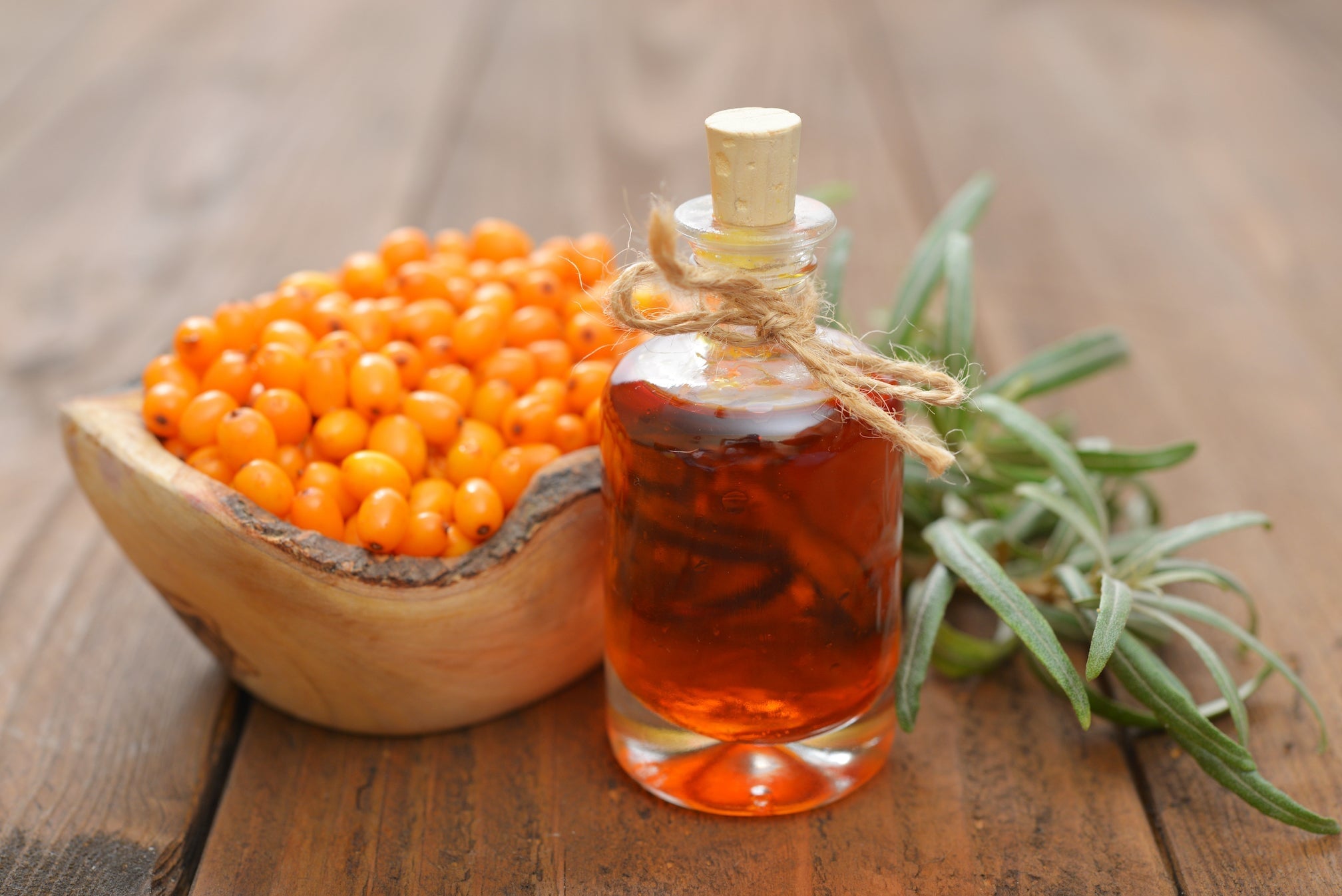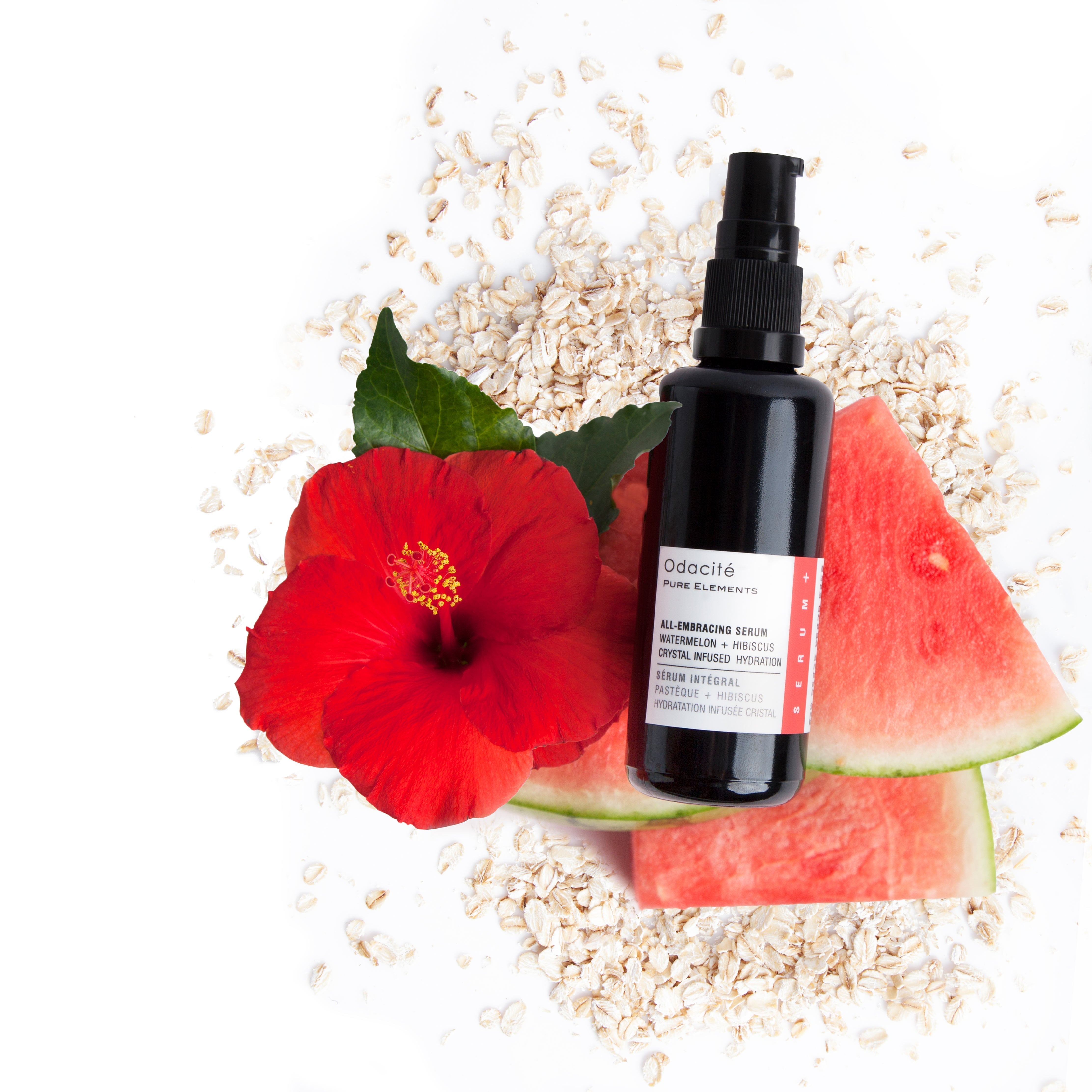Article: Sea buckthorn seed and sea buckthorn pulp oil

Sea buckthorn seed and sea buckthorn pulp oil

The oil is extracted from the fruit and/or seeds of the sea buckthorn plant. The relatively complex process of planting and harvesting explains the somewhat higher price of products containing sea buckthorn oil, at least when the ingredient is present in the appropriate quantity and quality. A special property of the oil is its high content of saturated palmitic acid and monounsaturated palmitoleic acid. The latter, in particular, is usually found in animal fats in this amount. The oil from the plant's seeds contains a significantly higher proportion of the unsaturated fatty acid, which makes it more susceptible to oxidation. The oil is therefore very easy to spread on the skin and is quickly absorbed.

Sea buckthorn pulp oil has anti-inflammatory and antioxidant properties. Studies have already confirmed its significant wound-healing properties. Its cell-regenerating properties also stimulate the skin's own metabolic processes and promote new cell formation. These properties make it particularly valuable for wound healing and slow-aging skin care. The oil's wound-healing and anti-inflammatory properties are particularly beneficial for skin affected by atopic dermatitis, sun-damaged skin, and rosacea.
Due to the fruit acids it contains, the oil should not be used pure or in excessively high concentrations. As is often the case, and especially in natural cosmetics, the saying goes, "it's the mix that makes the poison." When added to cosmetic products, it can unfold its wonderful effects with absolutely no irritation.

Sea buckthorn seed oil has a high content of linoleic and alpha-linoleic acid. Along with the phytosterols and tocopherols (vitamin E) it also contains, it has particularly supportive wound-closing, moisture-binding, and healing properties. This makes sea buckthorn kernel oil particularly suitable for flaky, dry skin, allergies, and inflamed blemishes.
The CO2 process now makes it possible to extract particularly valuable active ingredients from plants even more gently and therefore more stably. Unlike conventional steam distillation, the extraction of plant components occurs by heating and then cooling carbon dioxide (CO2). The result is a CO2-residue-free vegetable oil of the highest purity. The process is relatively new and relatively expensive due to the expensive equipment required. Vegetable oil produced by CO2 extraction is labeled accordingly in the INCIS.

The most important key facts are briefly listed here:
- 30 times more vitamin C than oranges
- extremely high concentration of vitamin E - neutralizes free radicals and helps the skin protect itself against external aggressive stressors
- very rich in carotenoids (pro-vitamin A), vitamins A and K
- rich in Omega 7 and Omega 8 fatty acids
- it mitigates the harmful effects of sun exposure on skin
- soothes irritated skin
- even skin that is particularly sensitive and reacts to many things tolerates sea buckthorn oil excellently
- particularly suitable for rosacea, neurodermatitis and sun-irritated skin
- Supportive in slow-aging care, as it promotes skin healing and cell regeneration
- it is also said to help against fungal infections
The sources for this report include
“Natural Cosmetic Raw Materials” by Heike Käser, published by Freya Verlag
Study "Medicinal and therapeutic potential of Sea Buckthorn" by Geetha Suryakumar and Asheesh Gupta, published in the journal of ethopharmacology
“Love Your Skin” by Abigail James, published by Kyle Books
“An Atlas of Natural Beauty” by Victoire de Taillac and Ramdane Touhami, published by Simon & Schuster
Products from our range with sea buckthorn:



